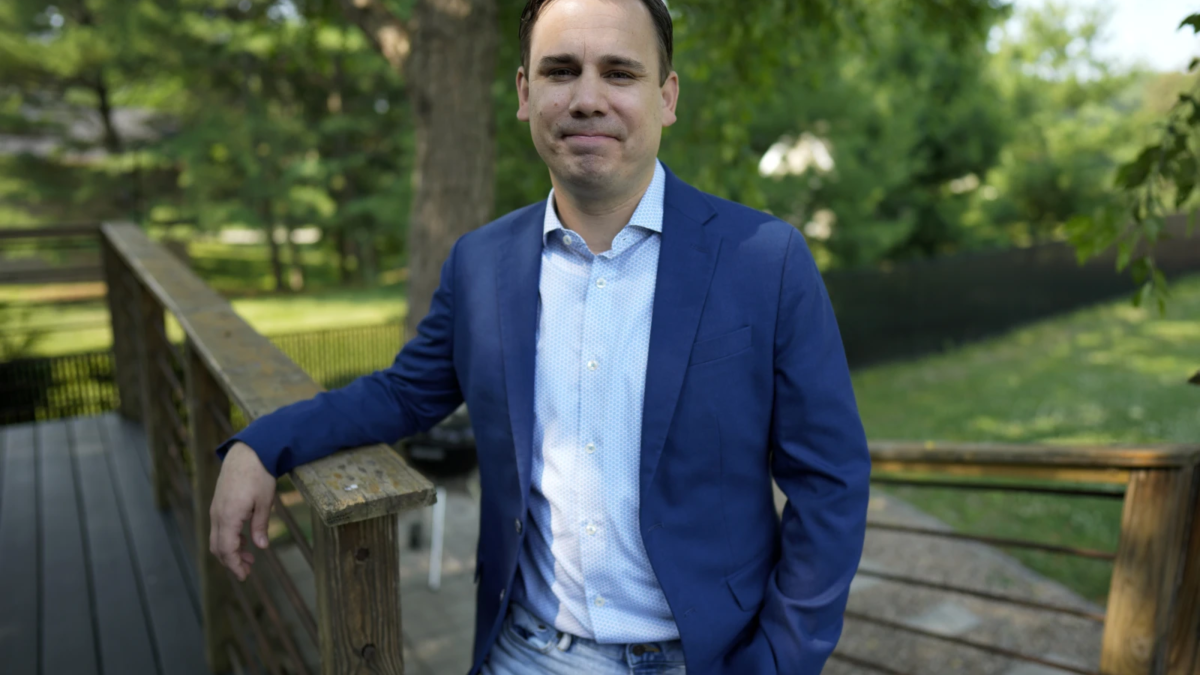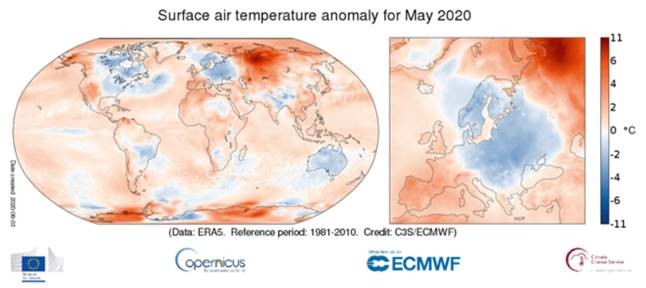Global warming deniers target scientists for vicious abuse on Musk’s Twitter – “I got to the point where it was definitely affecting my mental health”
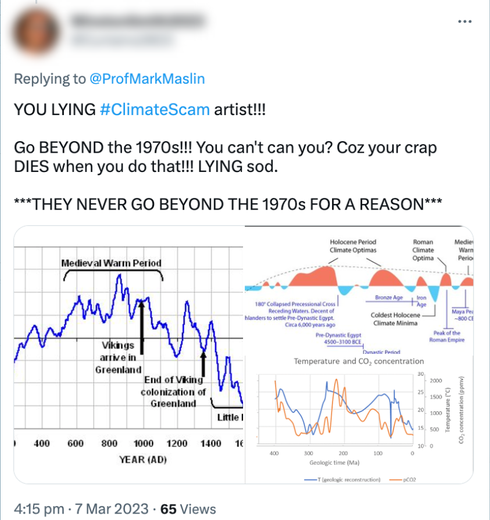
By Anna Fazackerley
14 May 2023
(The Guardian) – Some of the UK’s top scientists are struggling to deal with what they describe as a huge rise in abuse from climate crisis deniers on Twitter since the social media platform was taken over by Elon Musk last year.
Since then, key figures who ensured “trusted” content was prioritised have been sacked, according to one scientist, and Twitter’s sustainability arm has vanished. At the same time several users with millions of followers who propagate false statements about the climate emergency, including Donald Trump and rightwing culture warrior Jordan Peterson, have had their accounts reinstated.
Climate scientists say the change has been stark, and they are fighting to make themselves heard over a “barrage” of often hostile comments.
“There’s been a massive change,” said Mark Maslin, professor of earth system science at University College London and the author of popular books including How to Save Our Planet. “I get so much abuse and rude comments now. It’s happening to all of us, but I challenge the climate deniers so I’ve been really targeted.”
Maslin says he used to have regular meetings with Sean Boyle, Twitter’s former head of sustainability, who was laid off in Musk’s mass cull of staff shortly after he began his takeover in April 2022. Maslin said Boyle discussed the platform’s work to develop ways of ensuring that trusted information was pushed to the top.
“They were using climate change as a good test bed, because it was fairly clear who the good and bad actors were,” Maslin said. “But he was sacked and Twitter became the wild west.”
Maslin said he will stay on the platform and push back against conspiracy theories with scientific evidence. “I want people to understand there are solutions. There is a real need for us to be on social media defending the truth, however nasty the responses get.”
But not all scientists have found standing up to regular hostility an easy feat. Doug McNeall, a statistician working on climate change at the Met Office Hadley Centre in Exeter, said he had blocked or muted many accounts on Twitter even before Musk’s arrival. “I got to the point where it was definitely affecting my mental health,” he said.
“I spent years debating quite strongly with climate sceptics, including people I assume were paid,” he added. “But there can be a real personal cost interacting over a long time with people who are abusing you.”
McNeall said it was hard for scientists to work out how to cut through the false information on Twitter. “I just can’t tell if people are seeing disinformation or getting good scientific information about what is happening,” he said. “That’s really worrying.”
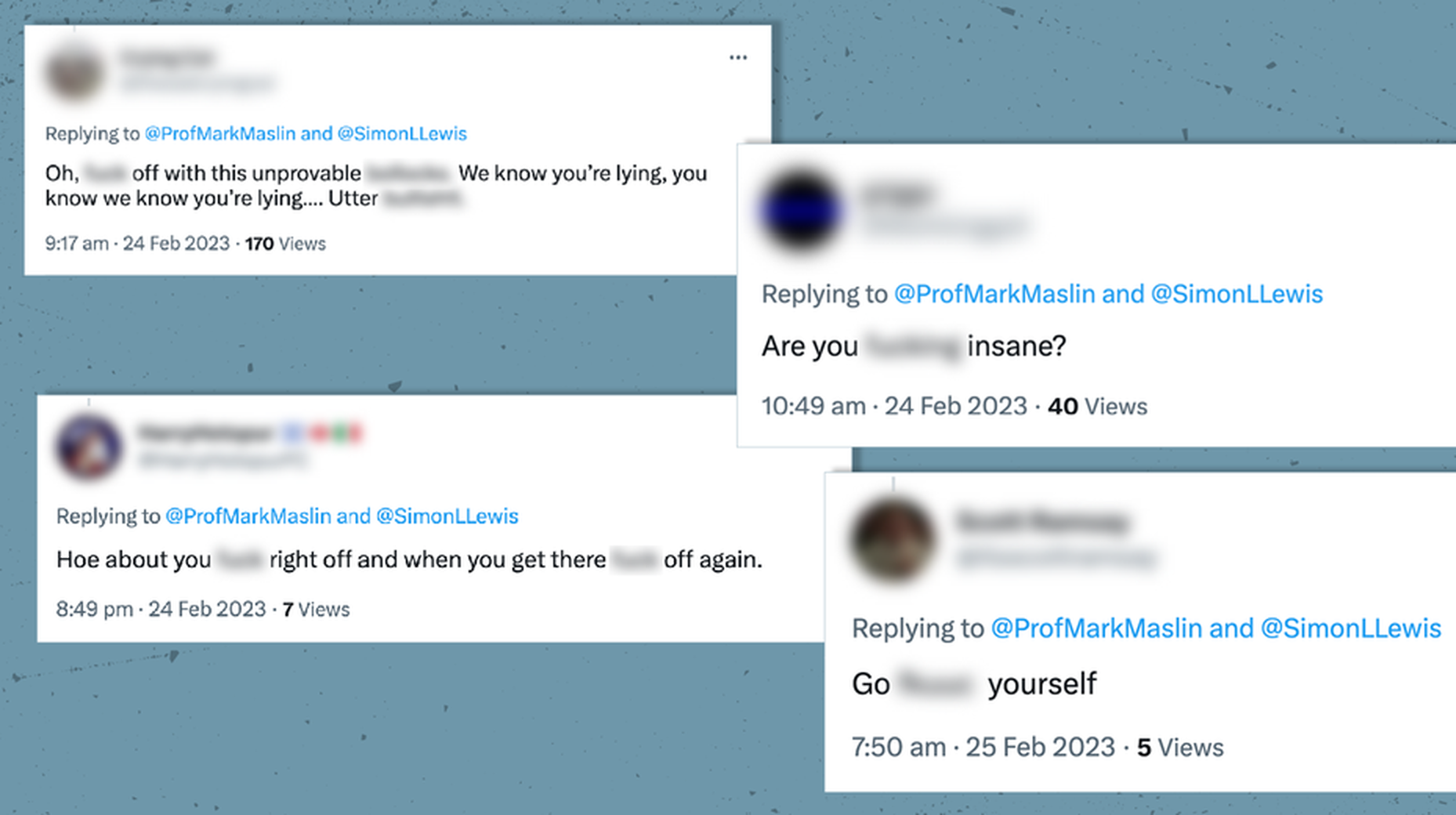
Ed Hawkins, professor of climate science at Reading University, who has 94,000 Twitter followers, said he had seen a “huge increase” in tweets from climate-denier accounts, often involving conspiracy theories or long-debunked topics. “A larger fraction of the comments are personal and abusive,” he said. “Any mildly popular tweet from a climate scientist is now targeted for a barrage of replies.”
Hawkins has noticed that many denier accounts have paid subscriptions to Twitter and therefore appear higher up in the replies. “It appears to be a coordinated effort [by climate change deniers] to make it appear as though climate denial is more prevalent than it really is,” he said.
Professor Richard Betts, chair of climate impacts at Exeter University and head of climate impacts at the Hadley Centre, said: “Outright hostility has increased in recent weeks. It’s mostly just people saying you’re talking rubbish. They don’t want a conversation.”
A survey of 468 international climate scientists published by campaign group Global Witness last month found that prominent scientists were the most likely to face abuse, with half of those who had published at least 10 papers reporting they had suffered online harassment as a result of their climate work. One in eight female scientists who reported abuse had been threatened with sexual violence.
Twitter was approached for comment but did not respond.
Climate crisis deniers target scientists for vicious abuse on Musk’s Twitter
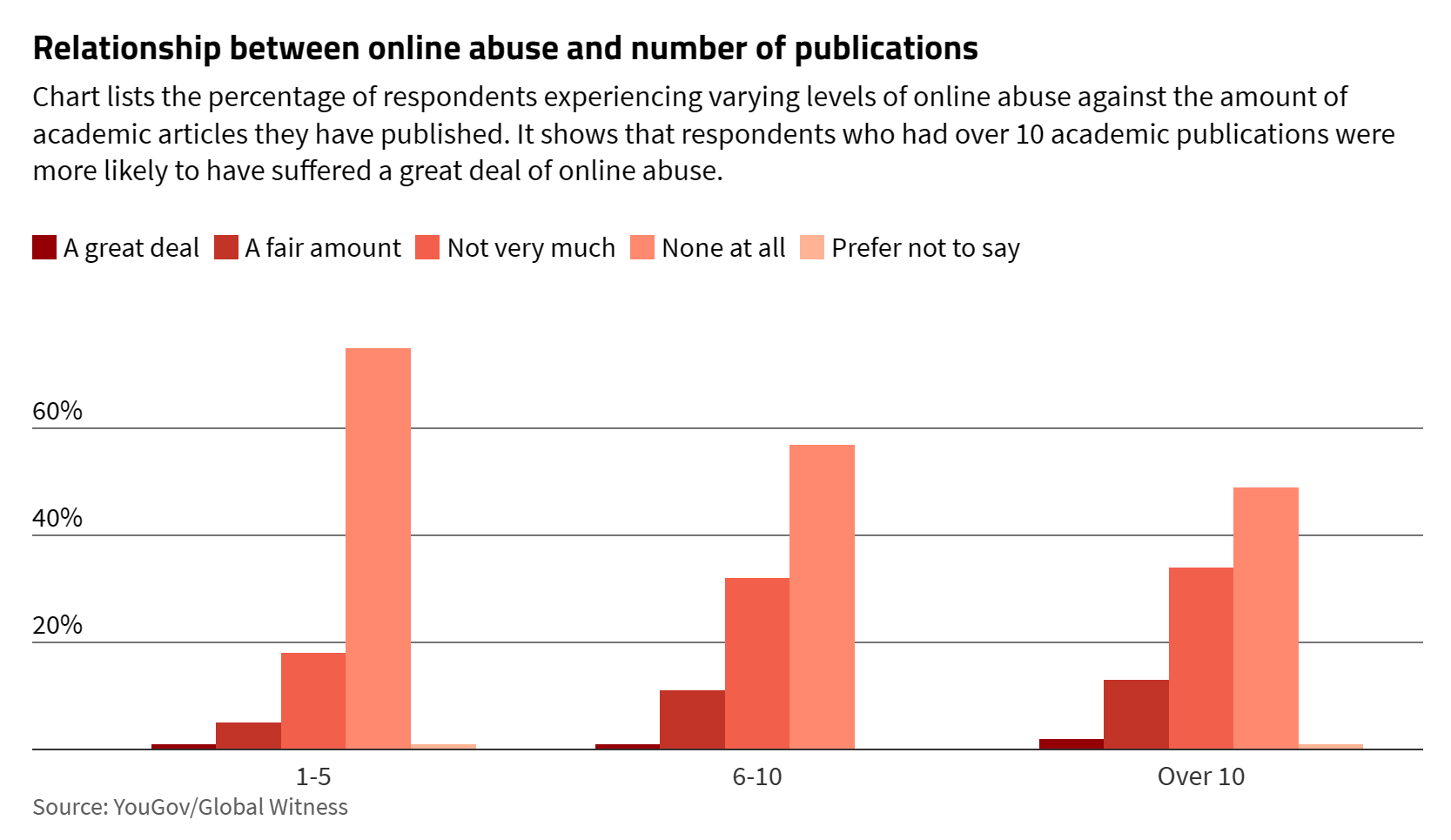
Global Hating
4 April 2023 (Global Witness) – Imagine that you’ve spent years studying glacial retreat in the Arctic. You believe you have a duty to share your findings that reveal how our world is changing with a wider public. But you remember having trouble sleeping after getting hateful messages on Twitter the last time you published your work there, and the death threat your colleague received after talking about her work online. Do you hold off from posting?
For decades, scientists have been documenting changes in the earth’s climate and warning of the effects. Their findings underpin government declarations of climate emergency and policy responses. But our new investigation reveals that online harassment and abuse against climate scientists imperils their work and ways of communicating.
In a survey of 468 scientists around the world working on climate topics, we found online abuse is common, and for many takes a mental and physical toll that inhibits climate discourse. Yet there are ways to stem it. Most abuse took place on Twitter and Facebook, platforms that can instead make reforms to protect scientists and enable informed publics and responsive climate action.
What we found
Half of climate scientists surveyed with more than 10 publications have faced online abuse.
The survey found that level of exposure to harassment was linked to amount of academic publications and frequency of media appearances. Overall, 39% of all scientists polled (183 out of 468) have experienced online harassment or abuse as a result of their climate work. This rate is lower for those who have published fewer than six articles (24%) and increases to 49% of scientists who have published more than 10 journal articles.
The results suggest abuse increases with both academic output and media exposure. Of those scientists who are in the media at least once a month (13% of respondents), 73% have experienced abuse, and 29% reported having experienced ‘a great deal’ or ‘a fair amount’ of abuse. Even for those scientists who have never made any media appearances (19% of respondents), 12% reported they have experienced online abuse. [more]
